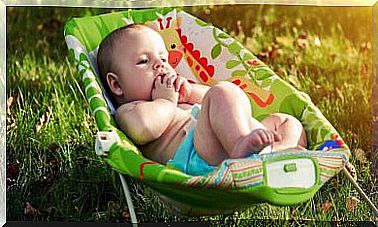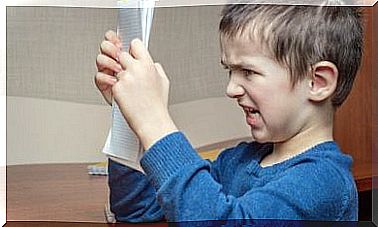Parental Separation Is A Challenge For Children
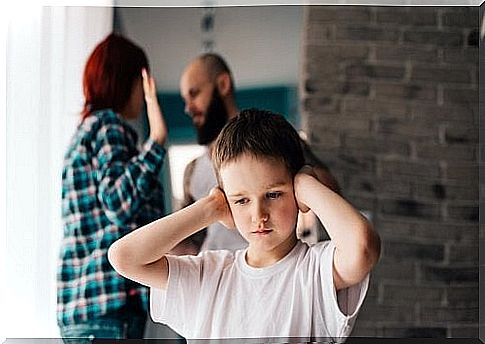
Parental separation can have a major impact on children. In this article, we give you some tips to prevent the breakup from causing major problems.
Parental separation can be a big challenge for children as no one can replace their parents’ love. It is important for parents to continue to be involved in their children’s upbringing and development, even if they are separated.
When separation occurs, parents need to keep in mind that it is a topic that needs to be shared with other adults. In this sense, it is not fair to show anger or negativity towards one’s partner in front of their children. This will only hurt them even more.
While at times it may seem like your child may express more affection towards a parent, this should not be taken personally. Try to respect and understand your child’s needs in such a sensitive moment.
The child must understand the situation
There should be a positive attitude and willingness to negotiate and listen. You should consider the child’s ability to understand the family situation and to express their opinions and feelings.
The separation of the parents can be experienced by children with great emotional intensity. Therefore, it is the parents’ responsibility to help the children understand certain points:
1. The decision to be separated is a problem that is solely between the parents
The child is not responsible for the situation, nor can the child do anything to change it. Parents may feel sad, angry or disappointed with the situation and the child may feel the same. It is therefore important to listen to the child’s feelings and opinions.
2. The child does not lose his mother or father to parental separation
Parents should encourage each other to maintain a positive relationship with the child. This positive attitude will help the child to adapt to this new phase in a better way.
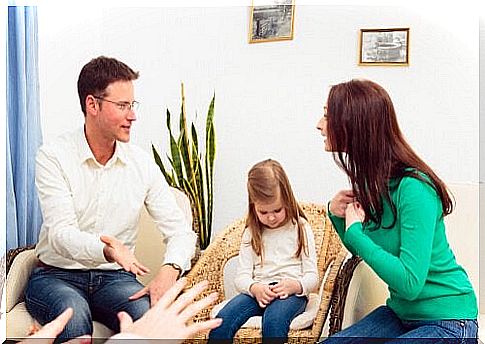
A relationship is based on love, respect and common goals
If these components are not present in the relationship, separation can be an enriching step forward for both parties.
“Parents should understand and respect the needs of their children throughout this sensitive phase.”
Parental separation is a big challenge for children
Changes always involve a certain amount of stress. The decision to separate can have different effects on children, depending on their age when it happens.
In that sense, the following is a list of how children can be affected by parental separation at different stages of childhood and adolescence:
For children between 0 and 6 years
During this stage, it is common for children to suffer from sleep disorders, a tendency to relapse, feelings of responsibility or aggression towards one of the parents.
It is important to assure the child that the child will not be abandoned by their father or mother, who may not have custody of the child. Both parents will remain active in the child’s life.
The child must be assured that the child is not responsible for the separation. The child should know where both his parents will live, and in addition, they should know that they will always be allowed to see them.
For children between 6 and 8 years
During this phase of childhood, they may ask more complicated questions and present a state of grief. Problems can arise in their performance in school through aggression or conflict with the parents.
It is important to take the time to answer their questions. You can also ask for special help if you believe your child needs it.
Show the child constant love and give the child space to express his or her concerns. Assure the child that their parents will always be there by their side.
Children between 8 and 12 years
In this phase of childhood, unpleasant situations can arise when they are faced with their parents ’decision. The child may hide their feelings or confront the parent who has decided to get a divorce.
In these cases, the child should be encouraged to express their feelings without having to hold back. They should maintain contact with both parents in order to continue the activities they shared before the separation.
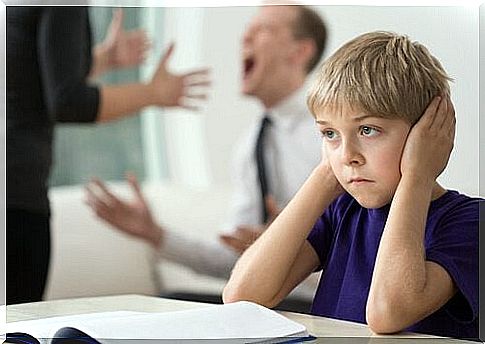
How Does Parental Separation Affect Teens?
During adolescence, children tend to take refuge in the constant support they receive from their peers. It is common for them to get closer to the parent they consider to be more tolerant.
In this phase, it is important to openly discuss the breakup and the new family organization. Keep the teen’s opinion in mind to help the child meet all his needs.
In conclusion, parental separation can be a challenge for their children. If separation occurs, it is important for parents to continue to take care of their children. Children need to maintain a close relationship with both their parents.
